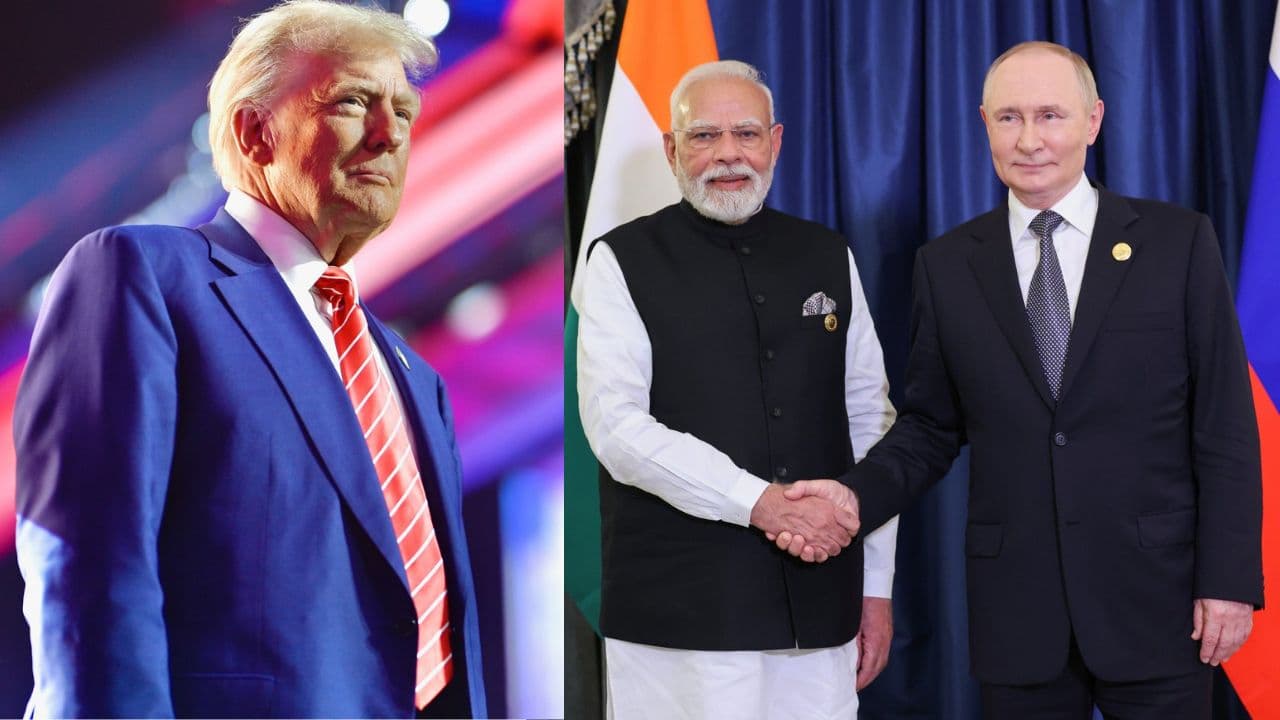Posting a picture of Prime Minister Narendra Modi, Chinese President Xi Jinping and Russian President Vladimir Putin, Trump said, it seemed, that the US had “lost India and Russia to deepest, darkest China”.
US President Donald Trump on Friday made a cryptic post on Truth Social, expressing thinning hopes of a trade deal with India. Posting a picture of Prime Minister Narendra Modi, Chinese President Xi Jinping and Russian President Vladimir Putin, Trump said, it seemed, that the US had “lost India and Russia to deepest, darkest China”.
“Looks like we’ve lost India and Russia to deepest, darkest, China. May they have a long and prosperous future together!” Trump said.
Trump’s cryptic post comes after India, Russia and China stood together at the Shanghai Cooperation Organisation meet in Tianjin. Earlier, Trump had also accused Chinese President Xi Jinping of “conspiring against” America after North Korean leader Kim Jong Un and Russian President Vladimir Putin attended China’s largest-ever military parade on Wednesday.
In a post on Truth Social, Trump accused Xi of “conspiring against” the United States as they attended the parade, which marked the 80th anniversary of Japan’s surrender in World War II.
“That cost hundreds of billions of dollars to Russia, you call that no action? Then I have not done Phase-2 yet or Phase-3… Two weeks ago, I said if India buys, India has got big problems, and that’s what happens,” Trump had said.
Moreover, he had also claimed that New Delhi had offered a “no tariff” deal. “China kills us with tariffs, India kills us with tariffs, Brazil kills us with tariffs. I’ve understood tariffs better than they did; I understood tariffs better than any human beings in the world. India was the most highly tariffed nation in the world, and you know what, they’ve offered me no tariffs in India anymore. No tariffs. If I didn’t have tariffs, they would never make that offer. So you have to have tariffs,” Trump said on The Scott Jennings Radio Show.
Trump’s decision to impose 50% tariffs on India has sparked criticism in US political circles, particularly after an appeals court deemed the duties unlawful.
